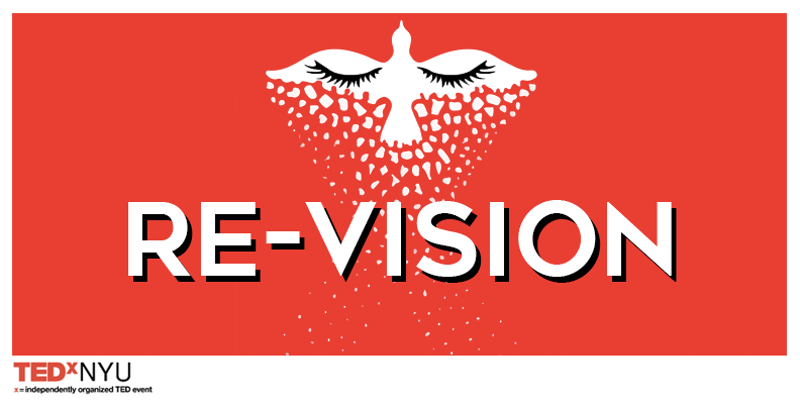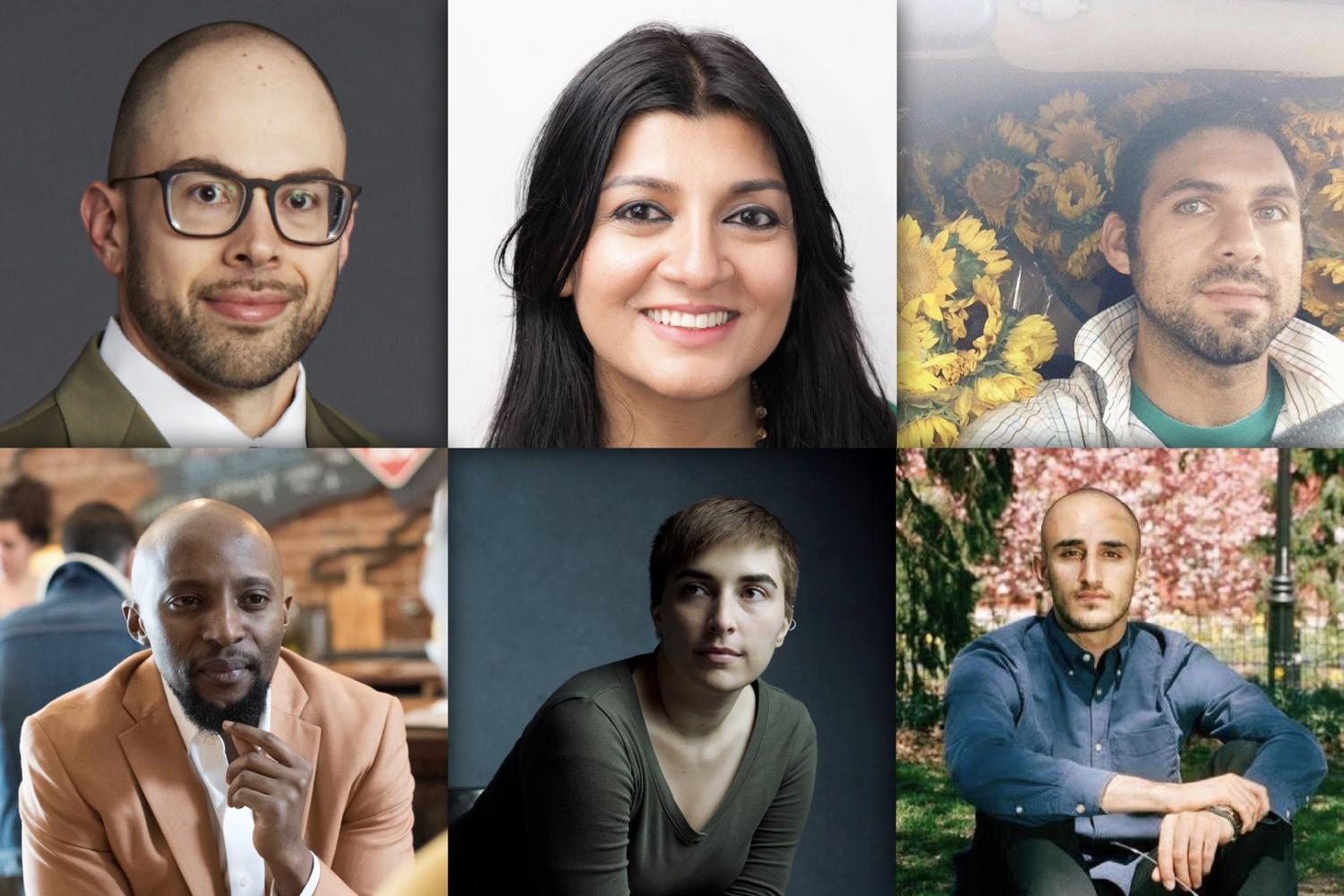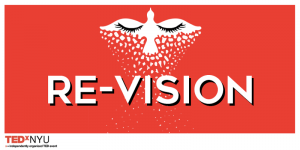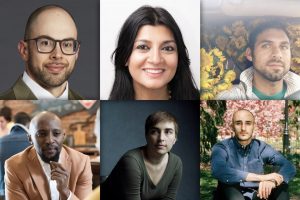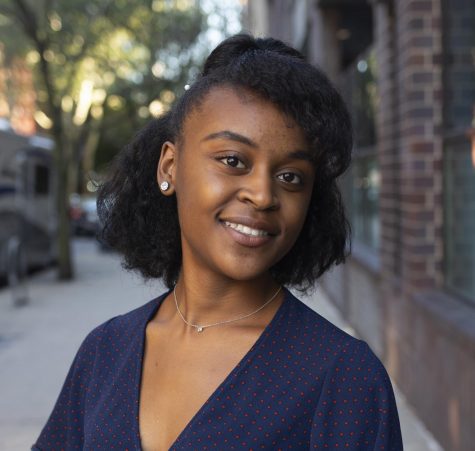Mindful Leaders of the Future Come Together at TedxNYU
April 18, 2018
In our minds, we draw the idea of the future as a reality apart from our own. But the truth is that these realities are intertwined — one forcefully pressing upon the other and one being widely dependent upon that force.
TEDxNYU is a entirely student-run organization that aims to unite NYU students through ideas by hosting conferences. This year’s conference was called “Re-Vision,” which reflected on the future of society.
Days before the event, WSN sat down with Adam Pating, president of TEDxNYU, who shared the behind-the-scenes of putting on an event such like this one which they do every year
“The content has to be strong [as well as] the event and the venue, there’s such high expectations,” Pating said. “So there’s a lot of effort that goes into it.”
When asked about the reasons behind selecting this year’s speakers, Pating highlighted the importance of choosing influencers with drive and passion.
“Doing a TED Talk, you gotta be a certain kind of person to really want to share and inspire, and feel so strongly driven,” he said. “And honestly, that’s what the audience feeds off of.”
The audience enjoyed all the ideas shared, and the speakers were nothing short of passionate. Speakers, such as Ayman Mukerji, Sam Chase, John Ross Rizzo, Jon Stepanian, Kennedy Gachiri, Stefanie Giglio and RJ Khalaf covered numerous themes, such as climate change, innovation, leadership, hunger relief and more.
REDIRECTION
Chase, a mindfulness instructor at MindfulNYU and the founder of Sam Chase Yoga, focused his talk on what students can do on a personal level as multitaskers to best utilize the small information that we can take in within a single moment.
“I think it is abundantly clear to me that if we [keep doing] things the way we’ve been doing things — as individuals, as communities, as countries, as worlds — we’re not necessarily headed in the best possible direction,” Chase said. “So having some strategies that help us pause, take a second look, consider alternatives, seems really important to me right now.”
Similarly, Stepanian, president and CEO of Community Solidarity, the largest vegetarian hunger relief program in the United States, talked about the importance of having a goal to reach but not being deterred by the path to get there.
“Whatever your vision is, whatever you’d like to see created, just take a small step in that direction,” Stepanian said. “It doesn’t have to be a huge one. So don’t worry about your first step, or the second step, just worry about the direction you’re going in.”
Stepanian has managed to bring leadership and mindfulness to many communities. After the conference came to a close, Stepanian took attendees to Washington Square Park to give out leftover food from the event. He invites NYU students to come out to Community Solidarity’s Bedford-Stuyvesant food share which takes place every Saturday at 3 p.m.
Stefanie Giglio, a recent graduate of Wagner’s master’s program and studied the intersection of climate change and urban planning, gave a talk on ending climate change. She shared the sentiment that there’s much more to be done.
“We are doing a lot, but it’s definitely not enough,” Giglio said. “As I said, not a single country in the world is on track to meet the Paris agreement goal. You can reduce your carbon footprint just through your lifestyle, just by changing where you’re living if you’ll actually change your behavior.”
She shared various ways that students can reduce their carbon footprint, such as eating less red meat, regulating their thermostat in their home, turning off lights and even choosing to live in a high-density place after finishing school. She pointed to a few career paths that one can follow if they hope to impact climate change.
“Any kind of engineering, whether its chemical engineering, electrical engineering or infrastructure engineering, because in order for us to build a new world that is low carbon, we’re going to need to be doing a lot of building,” Giglio said. ”So any kind of building systems — architecture, urban planners, anything that’s going to be physically changing the world.”
MINDFULNESS
Mindfulness is a common skill taught in cognitive behavioral therapy and dialectical behavioral therapy that focuses on staying present and being aware of your surroundings, not letting your emotions dictate you. Each speaker gave insight to their own path to enlightenment. Some said we must prioritize our own consciousness before being able to contribute to the collective consciousness, or a set of shared beliefs in society.
“I actually find it most effective and most helpful when practices like mindfulness aren’t something that [are] separate from the day, but become really part of the day, where it gets woven into the routine,” Chase said. “What’s really important to me is that everybody has access to tools that work for them, and I don’t think mindfulness is the only one. It’s just one that I like.”
Similarly, Mukerji, mindfulness teacher and neuroscience researcher at NYU Langone, realizes the great effect that mindfulness practices has on the body and the mind. She shared a few tips for fitting mindfulness exercises into your life as a student.
“Meditation is just a tool to learn mindfulness,” Mukerji said. “Tune into the present moment anchors such as breath, such as the sense of touch, sense of movement in the body, anything that’s tactile, smell, eyesight. If you could tune into any or all of those, you become mindful. Meditation is one training that’s been known for years, but there are many others.”
LEADERSHIP
To experience collective growth as a society and movement in the right direction, collaborations and opportunities to learn from passionate individuals like these are very necessary. It helps us to find and refine our own voice and purpose.
Gachiri founded Superstar Agenda, a talent platform dedicated to highlighting “individuals who are having a transformative impact in their communities and social systems by expressing their natural creativity through art or some form of entrepreneurship,” according to the “Re-Vision” event page.
He shared the importance of independence in choosing your own path to fulfillment in all areas of your life.
“Just don’t go with the flow for the sake of going with the flow,” Gachiri said in an interview with WSN. “I think we get caught up, especially in institutions like this, we get so caught up in kind of herd mentality and path dependence … Is it because you have a resistance to truly explore who you are? I think either way, people need to be willing to fail … you need to be willing to be different, and you also just have to like get … not everything is about you … When you just let go of that, then inspiration can come, and then now you connect to your inner self.”
Complementing Gachirir’s thoughts, GLS senior and President of the Muslim Students Association RJ Khalaf talked about his journey of becoming a leader, and his self-discovery when he traveled to Palestine to explore his ethnic roots and help refugees. He expressed that while the contexts of struggle vary from person to person, the struggle is the same, and because of that, we must not compare our paths to anyone else’s. Leaders often get caught up in working on the greater good, but Khalaf warns people of abandoning themselves in the process.
“It’s important for myself and everyone really to extend the same compassion they do for others for themselves,” Khalaf said. “That’s a real practice of self-care and I think mindfulness.”
Pating knew how much of an impact these speakers would have on the audience.
“After you hear everybody, I think you’ll feel really empowered to step up and change the world,” Pating said. ”I know that sounds really dramatic, but I think the reality is, or what I hope we realize, is that any single person can do anything they want.” “I can make a change in something I care about if I’m willing to put in the work and see it through. So, I think that’s the coolest thing about empowerment.”
Nonetheless, empowerment was the overarching theme of the event — evident from the energy in the room and upon the faces of those in the audience. The speakers shifted the tide and brought in waves of hope and inspiration.
Hopefully this sort of collaboration doesn’t end here, but we can all take inspiration from these leaders and become impactful in our own ways, which will lead to collective growth for the future.
Email Tianne Johnson at [email protected].


























































































































































